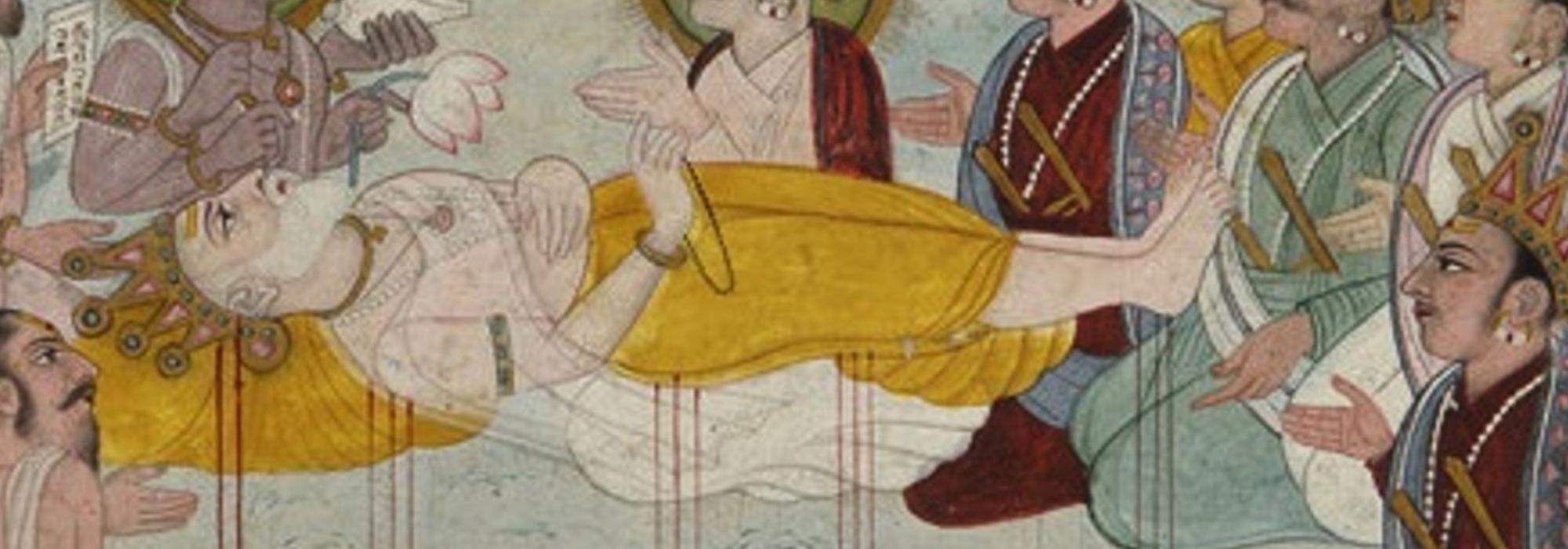Yudhiṣṭhira said, “However competent one might be, if destiny doesn’t smile on him, he will not earn any wealth. Even a helpless chap or a child, if favoured by fortune, earns a great deal of wealth. There are hundreds of people who have gained nothing even after great attempts and tribulations; there are also several people who have become wealthy without even trying. Similarly, those who tread the wicked path are living in comfort while the ones adhering to svakarma are reduced to decrepitude; although well-versed in nīti-śāstra, there are people who are unethical, immoral. Even ignorant and foolish people rise to the rank of ministers; although well-educated, there are people who remain fools; some don’t die even after being hit by hundreds of arrows; there are others who meet their death even as they come in contact with a single blade of grass. What is the reason for all this?”
Bhīṣma replied, “Although one is wealthy and prosperous, one should undertake severe tapas. Without sowing the seeds, no plants will grow and no farming can happen; the learned ones say that enjoyments arise from dāna, awareness comes from serving elders, and long-life is a result of adhering to ahiṃsā. Therefore, one must perform acts of philanthropy and charity; one must serve those who adhere firmly to dharma; one must always speak good words; one must always do good; one must always adhere to ahiṃsā; be it a mosquito or an ant or a worm, its characteristics-comforts-difficulties are all decided at birth. Therefore, one must have faith in good deeds and one must never rely on wicked deeds; Time enters the intellect and makes it act according to dharma or adharma. It is only dharma that can give rise to victory.”
In this manner, Dharmarāja had all his doubts and questions clarified by Bhīṣma and became quiet. Then Bhīṣma ordered all of them to go to their homes and return as soon as the sun turns to the Northern direction – i.e. at the onset of Uttarāyaṇa. As per his instructions, after a period of around fifty days, at the beginning of Uttarāyaṇa, Dharmarāja came there with ghee, flowers, fragant perfumes, fresh clothes, fragrant logs of wood, pieces of Eagle wood, and so forth; along with Dhṛtarāṣṭra, Gāndhārī, Kuntī, Kṛṣṇa, Vidura, and others, he came to meet Bhīṣma. Looking at him, Bhīṣma exclaimed, “Oh you’ve come, Yudhiṣṭhira! Come, come! Although it has been fifty-eight days since I fell down in battle, it feels like hundreds of years. Now, the sacred month of Māgha has begun! Another three-quarters left for the śukla-pakṣa to start, isn’t it?” Then turning towards Dhṛtarāṣṭra he said, “Mahārāja! You are a person who has understood dharma; you have worshipped those great scholars and saints who are erudite in Vedic wisdom. Therefore, don’t be sad; what had to happen, happened. Just as the Pāṇḍavas are the sons of Pāṇḍu, they are your sons as well, as per the dharma; they will wait upon you and listen to your every command; they will take care of you. Your own children were overcome by anger, greed, and jealousy; thus they tread the path of unrighteousness and were destroyed. Don’t weep for them!” Then turning towards Kṛṣṇa, he said, “Vāsudeva! Protect the Pāṇḍavas! You are their sole refuge. When you came to the court of Dhṛtarāṣṭra with the message of peace, I had told Duryodhana in clear words – ‘Where there is Kṛṣṇa, there will be victory; agree to the truce!’ That fool paid no heed to my words. He caused pain to the earth and he too perished. You are the incarnation of the ancient ṛṣi Nārāyaṇa – this was told to me by both Vyāsa and Nārada. Give me permission to leave my body; if you shower your grace upon me and give your command, I will attain the highest realms!”
Kṛṣṇa said, “I give you permission and my command, Bhīṣma! Go, go forth! Go and join the vasus! [There are eight vasus of which Bhīṣma is supposed to be the eighth one born in human form] You are free from all blemishes; you are a pure soul; you are devoted to your ancestors; you are a rājarṣi; you are a second Mārkaṇḍeya; therefore, Death is standing next to you with folded hands, as if he is your slave!”
At that point, Bhīṣma cast a glance at all the people who stood around him and said, “I will take your leave; I seek the permission of all of you; I request you all to adhere to the truth always; indeed, truth is a great source of strength; I wish that you all live with self-restraint, being adherents of ahiṃsā, with characters always aligned to dharma, and firmly rooted in tapas!” Saying these words, he folded his hands in a namaste, offering his respects to everyone. Then, being absolutely firm, he inhaled and held his breath. His prāṇa rose higher and higher. As life left the various parts of his body, the arrows that were pierced in those parts fell away. Thus, in a matter of seconds, all the arrows that had pierced his body fell to the ground. His prāṇa left him through his forehead and like a meteor it shot into the sky, soon to be invisible. Celestial drums were played; there was a shower of flowers from the heavens.
Anuśāsana-parva is concluded.
This is an English translation of Prof. A R Krishna Shastri’s Kannada classic Vacanabhārata by Arjun Bharadwaj and Hari Ravikumar published in a serialized form.
The original Kannada version of Vacanabhārata is available for free online reading here. To read other works of Prof. Krishna Shastri, click here.












































